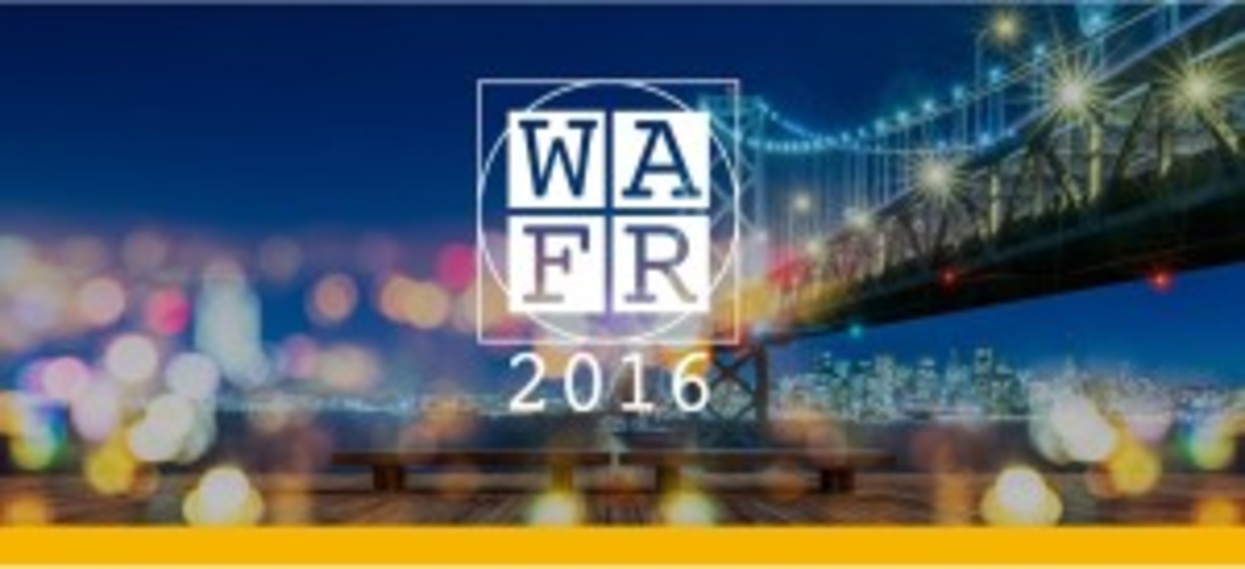Ken Goldberg at the 12th Annual Workshop on the Algorithmic Foundations of Robotics

UC Berkeley students and faculty attended the 12th International Workshop on the Algorithmic Foundations of Robotics (WAFR). The conference ran from Sunday December 18th to Tuesday the 20th, starting with technical tours of the UC Berkeley and Stanford robotics labs on Saturday the 17th. This year the main venue was the Exploratorium, a “public learning laboratory” founded by Frank Oppenheimer in 1969 and described by the New York Times as the most important science museum opened since the mid-20th century. Characterized as "a mad scientist's penny arcade, scientific funhouse, and experimental lab,” it is considered the prototype for participatory science museums around the world.
Goldberg was the chair of the conference's session on robust manipulation and assembly on the 20th. Several papers that Goldberg co-authored were presented at the conference, including Synthesis of Energy-Bounded Planar Caging Grasps using Persistent Homology; and SWIRL: A Sequential Windowed Inverse Reinforcement Learning Algorithm for Robot Tasks With Delayed Rewards.
The first Workshop on the Algorithmic Foundations of Robotics was held in San Francisco in 1994, organized by Jean-Claude Latombe, Dan Halperin, Lydia Kavraki, and Ken Goldberg as a single-track meeting for presenting new research on the design and analysis of robot algorithms from both theoretical and practical perspectives. Since then, WAFR has been held every two years in Toulouse, Houston, Dartmouth, Nice, Utrecht, New York, Guanajuato, Singapore, Boston, and Istanbul. Papers focus on fundamental algorithmic issues, such as complexity, machine learning, probabilistic reasoning, and applications to manufacturing, surgery, distributed robotics, human- robot interaction, intelligent prosthetics, computer animation, and computational biology.
WAFR 2016 was sponsored by CITRIS, NVIDIA, Siemens, Samsung, ABB, Skydio, Microsoft, The International Foundation for Robotics Research, OSARO, Disney, Softbank Robotics and the National Science Foundation.
